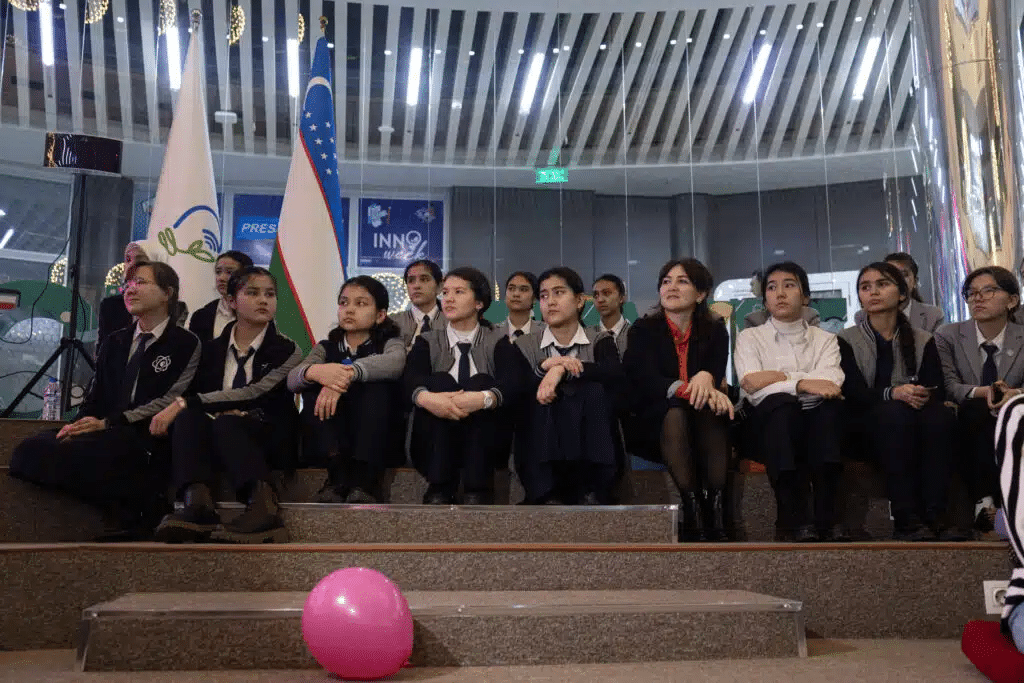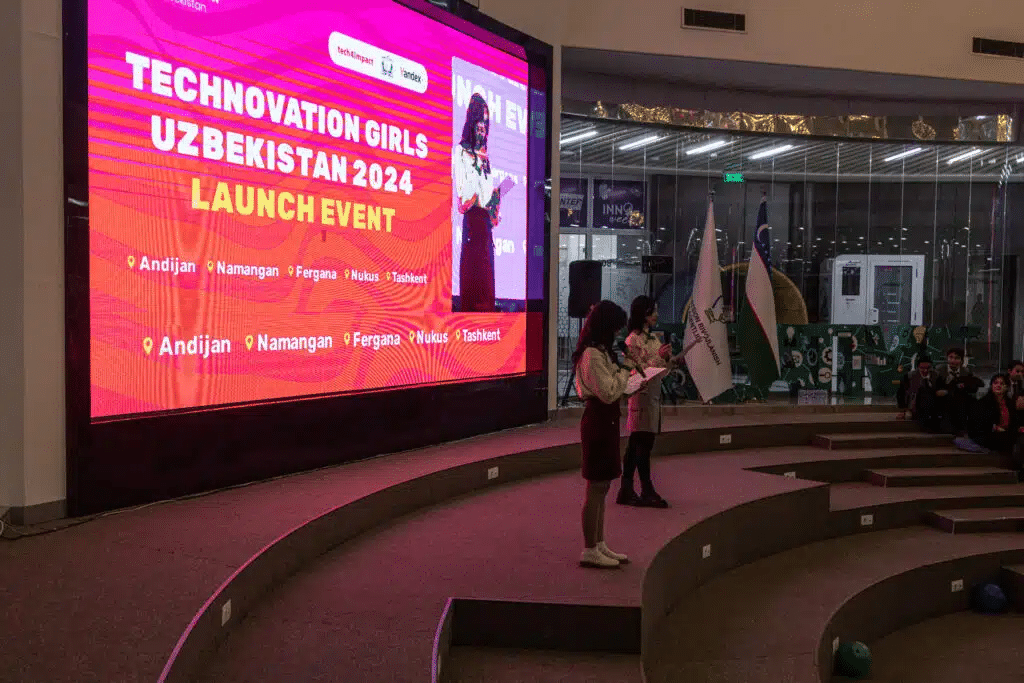
The IT industry continues to experience significant gender imbalance. Even though the first computer programmer was a woman, today, the majority of professionals in this field are men. However, since success in the digital world primarily depends on knowledge and skills—regardless of gender—many large IT companies are working to address this gap by educating a new generation of specialists, particularly among young women.
At Yandex, an IT giant, women make up over a third of the workforce, a figure considered high even among Western tech companies. One of the core values of the company’s culture is to treat each other with respect, regardless of age, gender, sexual orientation, religion, or personal beliefs.
Kursiv Research talks to Daria Zolotukhina, the HR director of Yandex, about the company’s efforts to close the gender gap in the tech industry.
Promotion of young talents
— Daria, with approximately 26,000 employees at Yandex, what is the current ratio of men to women in the team? How does the company champion and promote female leadership within its organisational structure?
— At Yandex, 35% of our total employees are women. This figure is slightly higher than the average gender ratio in the U.S. and the global tech industry.
We maintain a strict policy against gender discrimination. Career advancement and opportunities within the company are based solely on talent and the demonstration of our core values. Additionally, Yandex provides support to help women adapt to the industry and find their footing. We offer a hybrid work model, allowing employees to work from home for part of the week.
We can temporarily provide remote work options for women returning from maternity leave. Yandex strives to create a working environment that enables women to integrate smoothly while balancing work and motherhood.
Our commitment to supporting women extends to future generations’ education through our Yandex. Education project, we focus on recruiting employees for our company and helping the broader market. We organise various events, such as “IT Girls” parties, to promote careers in technology among schoolgirls and female students. The common belief is that programming is male-dominated, discouraging many girls from considering careers as developers. By providing career guidance, we aim to challenge these stereotypes and encourage more girls to enter the IT industry. Our goal is to broaden the pipeline so that as many young women as possible choose to pursue careers in technology.
Creativity for IT
— Why are girls important in IT, and in what specialisations can they be represented?
— Programming involves more than just coding; it also includes creative tasks, especially in training artificial intelligence. Specialists in this area must determine what and how to teach AI effectively. Furthermore, this profession requires a solid understanding of technoethics, which has become an essential field today.
Some careers specifically require a liberal arts education. For instance, a new profession has emerged recently: the artificial intelligence trainer. We established a school dedicated to training AI trainers to meet the demands of this field. Typically, this role is well-suited for individuals with backgrounds in editing or journalism. Strong writing skills are crucial, as a key responsibility is to create a database of responses for training generative artificial intelligence.
— Has the number of women in IT increased? If so, what is this related to?
— Yes. First, the profession itself is becoming more popular and understandable. Many universities are expanding their educational programmes – they are becoming more applied and exciting. In addition, companies have an increasing need to develop their staff, but today, there is an acute shortage of IT specialists in all countries. Therefore, everyone wants to get as many people as possible, including women, to study IT.
— What is needed for girls not to be afraid to go forward and conquer the top?
— Role models are very important, especially in a society that tends to be patriarchal. In this case, girls need to see that it is possible to combine career and family or that you don’t have to be authoritarian to be a leader. Stereotypes will exist in any case – in different cities with different degrees, but young people should have attractive role models in front of them.
— In your opinion, is it difficult for a girl to fulfil herself in IT? Is there such a thing as a glass ceiling?
— There is no glass ceiling in biotech today, but there are barriers for women in the form of double standards. Female executives are often expected to be demanding but at the same time soft and adaptable, while men are expected to behave unambiguously. This leads to internal barriers: women usually doubt their decisions’ correctness or management style.
In 2022, Yandex created the film’ Mathematical Inequality’. In it, female employees of Yandex revealed that when they meet with many men, they often doubt the correctness of their chosen outfit or competence. Reality does not confirm the need for such behaviour or thinking, but these stereotypes live inside us. Therefore, the main challenge is fighting our stereotypes, attitudes and double standards.

Success Program
–Yandex carries out various social initiatives and educational programs in different countries, including the Technovation Girls project in Uzbekistan.
– In Uzbekistan, we offer Yandex.Go and Yandex.Food services. One of our primary missions in every market we operate in is to support social initiatives, particularly in education. We are committed to training talented IT professionals not only for our company but for the entire market as well.
In Uzbekistan, we have identified two key areas for development. The first is a programming school based at the IT Park. The second project is Technovation, which we are implementing in partnership with Tech4Impact for the second consecutive year. Last year, approximately 1,500 girls participated in this initiative, and we see it as a valuable opportunity to foster interest in IT and promote the profession within the country.
The Technovation project involves 60 female employees from Yandex, many of whom serve as mentors and were born in Uzbekistan. For these mentors, the project is a personal story; they can inspire other girls from their hometowns.
By providing role models and structuring the profession, we can positively influence the mindset and aspirations of girls in the region.

Uzbek schoolgirls beat along the wind
In autumn 2023, at the Technovation Girls World Summit in Silicon Valley, a team from Uzbekistan called Tecnas reached the finals for the first time, ranking in the top 12 out of more than 2,500 teams worldwide. The schoolgirls were awarded the Social Impact Award for presenting the best idea to solve a social problem. Their project, Sinov, is focused on creating a virtual laboratory.
The Tecnas team is made up of ten schoolgirls, all of whom met during the Technovation Girls program in Tashkent. One member is from the Syrdarya region. Each participant has a unique role within the team: some focus on design, others on business strategy, and some are developers. According to the team, Technovation Girls helped them unite and create such an important product.
“One of the things we looked forward to in middle school was the hands-on chemistry lessons in the labs, where we could mix substances and observe the reactions: the smoke and bubbles. Instead, we made dry notes from textbooks and memorised theory, which greatly disappointed us. I think many students in Uzbekistan face the same issue,” shared Ozodakhon Ikromova, one of the Tecnas participants, as she recounted the inspiration for their virtual laboratory app.
The app allows schoolchildren to conduct experiments in various subjects, including biology, chemistry, and physics. Although the app has yet to be published, the developers are seeking additional funding to make it a reality. The team aims to implement the app into the school curriculum across Uzbekistan.
Saida Yusupova, the coordinator of the Technovation Girls program in Uzbekistan and the director of the NGO Tech4Impact, mentioned that Technovation Girls is the largest technology competition for girls, organised for the past eight years. Under the guidance of mentors, the participants learn to address socially significant problems in their communities using technology.
The program is open to girls from all over Uzbekistan, with a current focus on five regions: Karakalpakstan, three provinces in the Fergana Valley, Samarkand and Bukhara provinces, and Tashkent. Most of the training is conducted online, allowing anyone with internet access, time, and the desire to participate.
In addition to the main program that teaches girls how to develop mobile applications, there are sessions where they can ask questions, acquire new knowledge, and network with each other. The participants work in teams for three to four months. Last year, a record number of applications were developed—about 100. This year, the team anticipates even greater participation, having welcomed around four thousand girls to the program since its inception.













